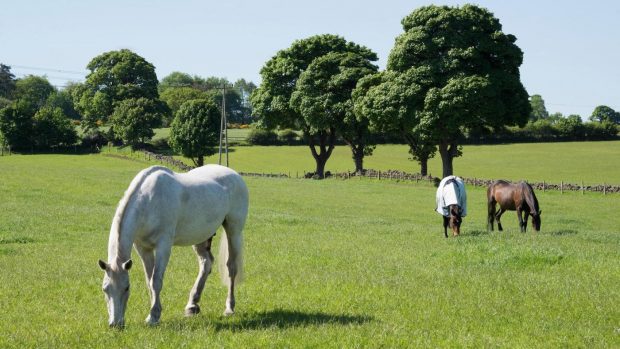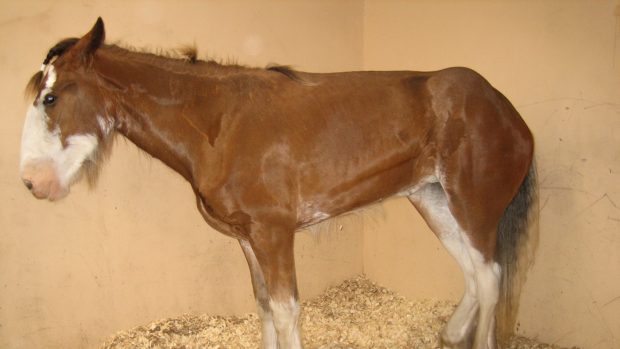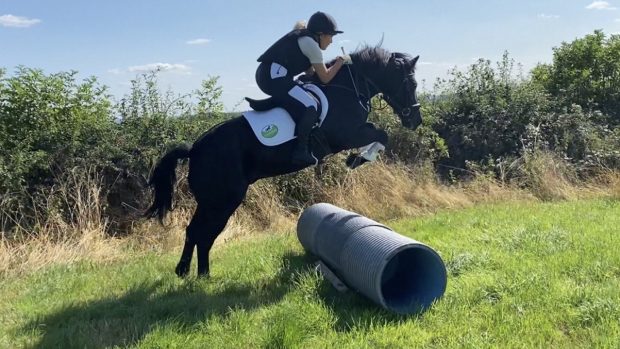Vets are warning that this winter’s extreme weather may be causing a rise in cases of equine grass sickness (EGS) after 2 horses died on Guernsey.
This is believed to be the first instance of the disease on the island, which has only around 750 horses.
The outbreak occurred at a single yard in February. A pony was also affected, but is recovering.
Guernsey vet David Chamberlain said the cases could be the result of excessive rain, which may have “triggered rapid grass growth, increasing the levels of causative bacteria in the horses’ gut”.
“This has been the wettest February in 35 years [and] the wettest winter in 101 years,” said Steve Byrne of the Guernsey Society for the Prevention of Cruelty to Animals, which is working with vets to advise owners.
The Animal Health Trust — which confirmed the Guernsey cases by laboratory analysis — told H&H that, while it has no records for Guernsey, numbers of cases across Britain are “a huge underestimate”. This is because EGS is not a notifiable disease and can only be confirmed by a post-mortem.
EGS is a neurological disease of unknown cause that paralyses the digestive system. More than 95% of cases are fatal.
It can occur in any breed of horse, usually 4- to 5-year-olds, and is almost exclusively found in grazing horses, but many owners are not aware of it (news, 25 July 2013).
“Surveillance shows there are around 140 cases per year, but as owners aren’t obliged to tell us, there are probably many more,” said the trust’s EGS research co-ordinator Jo Ireland.
“Anecdotally from vets, we understand there has been a rise in the UK this winter, but due to few people reporting it, we have no figures to back this up.”
The Equine Grass Sickness Fund’s Kate Thomson said that cases this year “have been as random as the weather, trickling on throughout the winter, rather than the usual May and September peaks”, although “hard evidence” is lacking.
Signs of grass sickness
- Abdominal pain
- Poor appetite
- Patchy sweating
- Increased heart rate
- Increased saliva, dribbling
- Depression
New trial of EGS vaccine
Horse owners are being encouraged to take part in a new vaccine trial for Equine Grass Sickness (EGS).
The trial will be conducted by the Animal Health Trust with the Universities of Edinburgh, Liverpool and Surrey and will follow 1,100 horses and ponies for 2 years.
There is growing scientific evidence to suggest that EGS may be caused by the bacterium Clostridium botulinum type C, which is found commonly within soil and is capable of producing a range of toxins.
Dr Jo Ireland said: “Half of the horses and ponies on the trial will be vaccinated with a C. botulinum type C toxoid vaccine; the other half of the horses and ponies will receive an inactive placebo injection. We will record, review and compare incidence of EGS between the 2 groups to determine the efficacy of the vaccine.
“If we see reduced disease incidence in vaccinated horses, this would provide a major breakthrough in the prevention of EGS.”
Only healthy horses and ponies with a valid passport kept on premises with a history of EGS cases in the past 2 years will be eligible.
To find out more about the vaccine trial visit: www.equinegrasssickness.co.uk or email equinegrasssickness@aht.org.uk.
This article was first published in Horse & Hound magazine (20 March 2014)





